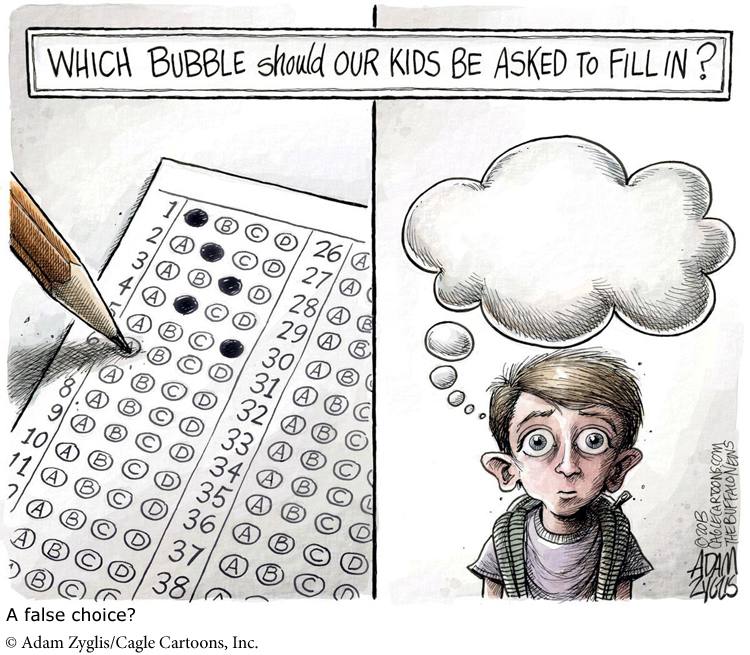Fallacies of Emotional Argument
Fallacies of Emotional Argument
Emotional arguments can be powerful and suitable in many circumstances, and most writers use them frequently. However, writers who pull on their readers’ heartstrings or raise their blood pressure too often can violate the good faith on which legitimate argument depends.
Scare Tactics
Politicians, advertisers, and public figures sometimes peddle their ideas by frightening people and exaggerating possible dangers well beyond their statistical likelihood. Such ploys work because it’s easier to imagine something terrible happening than to appreciate its rarity.
Scare tactics can also be used to stampede legitimate fears into panic or prejudice. Laborers who genuinely worry about losing their jobs can be persuaded to fear immigrants who might work for less money. Seniors living on fixed incomes can be convinced that minor changes to entitlement programs represent dire threats to their well-being. Such tactics have the effect of closing off thinking because people who are scared often act irrationally. Even well-intended fear campaigns — like those directed against smoking, unprotected sex, or the use of illegal drugs — can misfire if their warnings prove too shrill. People just stop listening.
Either/Or Choices
Either/or choices can be well-intentioned strategies to get something accomplished. Parents use them all the time (“Eat your broccoli, or you won’t get dessert”). But they become fallacious arguments when they reduce a complicated issue to excessively simple terms or when they’re designed to obscure legitimate alternatives. Here, for example, is Riyad Mansour, the Palestinian representative to the United Nations, offering the nation of Israel just such a choice in an interview with Charlie Rose in January 2014:
In “The Nothing-to-Hide Argument” Daniel J. Solove tries to dismantle the either-or fallacy in relation to our expectation of privacy.
It is up to them [the Israelis] to decide what kind of a state they want to be. Do they want to be a democratic state where Israel will be the state for all of its citizens? Or do they want to be a state for the Jewish people, therefore excluding 1.6 million Palestinian Arabs who are Israelis from their society? That debate is not our debate. That debate is their debate.
But Joel B. Pollak, writing for Breitbart News Network, describes Mansour’s claim as a “false choice” since Israel already is a Jewish state that nonetheless allows Muslims to be full citizens. The either/or argument Mansour presents, according to Pollack, does not describe the realities of this complex political situation.

Slippery Slope
The slippery slope fallacy portrays today’s tiny misstep as tomorrow’s slide into disaster. Some arguments that aim at preventing dire consequences do not take the slippery slope approach (for example, the parent who corrects a child for misbehavior now is acting sensibly to prevent more serious problems as the child grows older). A slippery slope argument becomes wrongheaded when a writer exaggerates the likely consequences of an action, usually to frighten readers. As such, slippery slope arguments are also scare tactics. In recent years, the issue of gun ownership in America has evoked many slippery slope arguments. Here’s one perspective on the tactic:
The leadership of the NRA is exceptionally fond of the Slippery Slope argument. “Universal background checks will inevitably be followed by a national registry of gun-owners which will inevitably be followed by confiscation of all their guns.” Or, “A ban on assault-style weapons and thirty+ round magazines will inevitably be followed by a ban on hand guns with ten-round magazines, that will inevitably be followed by bans on all guns, including antique dueling pistols inherited from our Founding Fathers.”
Problem number one with this slide down the fearsome slope is how much weaponry has changed since the days of militias with muskets. Even the NRA agrees that lines have to be drawn somewhere. They do not favor legalization of civilian use of rocket-propelled grenades, bazookas or stinger missiles. If there is a slippery slope we are starting approximately half-way down.
— Michael Wolkowitz, “Slippery Slopes, Imagined and Real”
Social and political ideas and proposals do have consequences, but they aren’t always as dire as writers fond of slippery slope tactics would have you believe.
Overly Sentimental Appeals

Overly sentimental appeals use tender emotions excessively to distract readers from facts. Often, such appeals are highly personal and individual and focus attention on heartwarming or heartrending situations that make readers feel guilty if they challenge an idea, a policy, or a proposal. Emotions become an impediment to civil discourse when they keep people from thinking clearly.
Such sentimental appeals are a major vehicle of television news, where tugging at viewers’ heartstrings can mean high ratings. For example, when a camera documents the day-to-day sacrifices of a single parent trying to meet mortgage payments and keep her kids in college, the woman’s on-screen struggles can seem to represent the plight of an entire class of people threatened by callous bankers and college administrators. But while such human interest stories stir genuine emotions, they seldom give a complete picture of complex social or economic issues.
Bandwagon Appeals
Bandwagon appeals urge people to follow the same path everyone else is taking. Such arguments can be relatively benign and seem harmless. But they do push people to take the easier path rather than think independently about what choices to make or where to go.
Many American parents seem to have an innate ability to refute bandwagon appeals. When their kids whine, Everyone else is going camping without chaperones, the parents reply, And if everyone else jumps off a cliff (or a railroad bridge or the Empire State Building), you will too? The children groan — and then try a different line of argument.

Unfortunately, not all bandwagon approaches are so transparent. In recent decades, bandwagon issues have included a war on drugs, the nuclear freeze movement, campaigns against drunk driving, campaigns for immigration reform, bailouts for banks and businesses, and many fads in education from high-stakes testing to MOOCs. All these issues are too complex to permit the suspension of judgment that bandwagon tactics require.